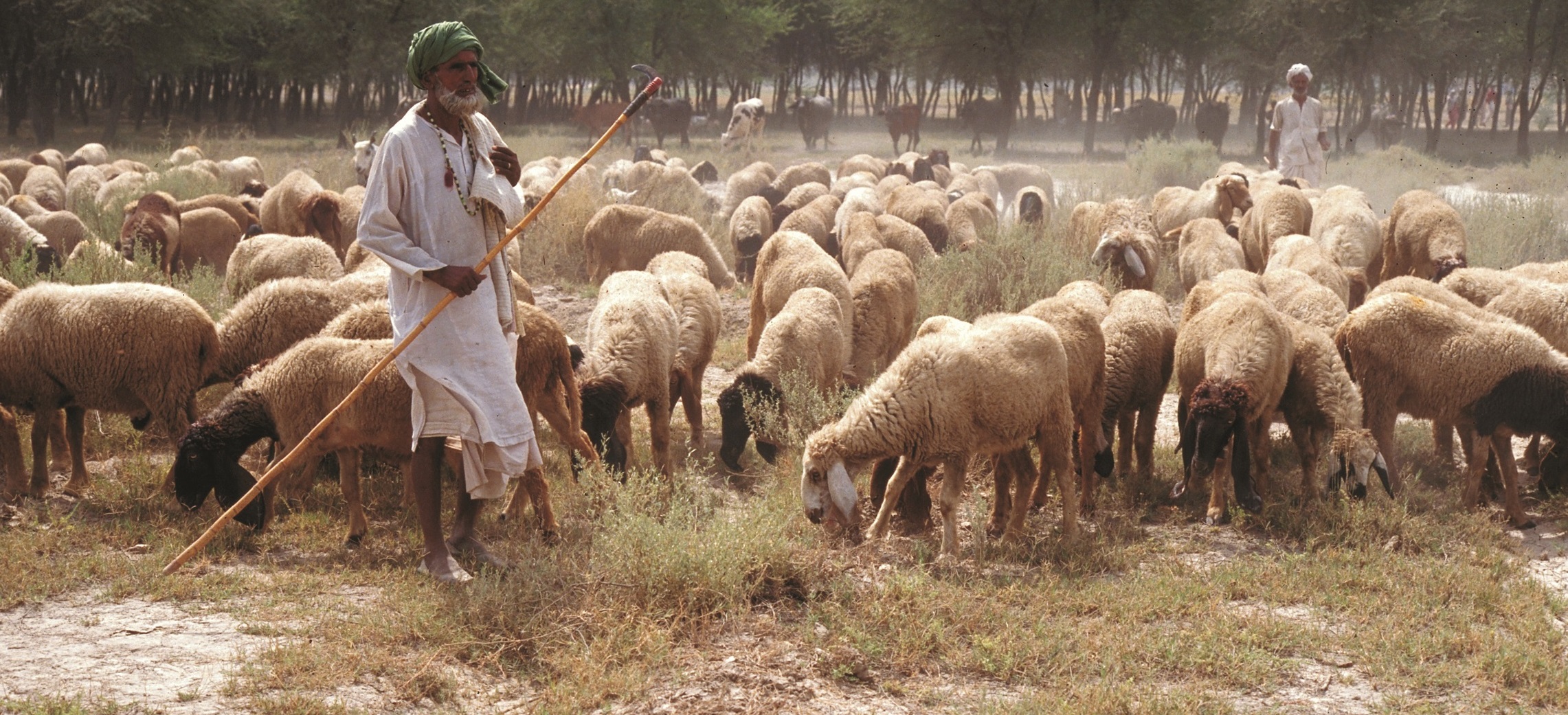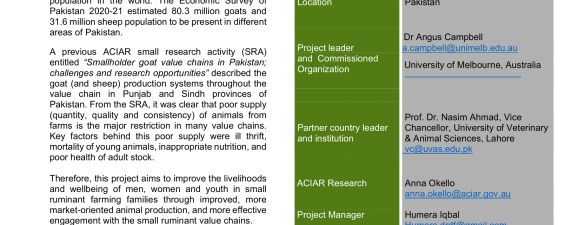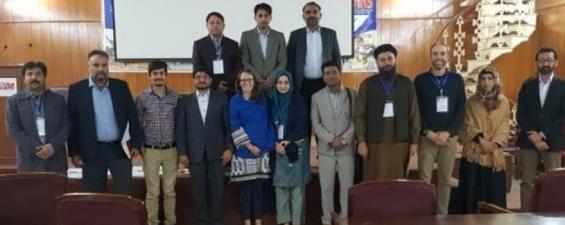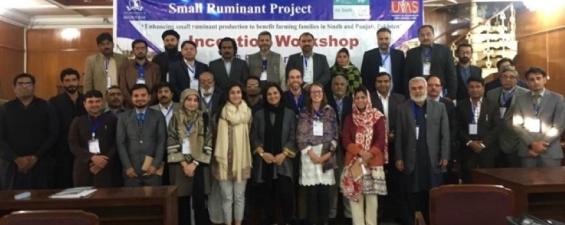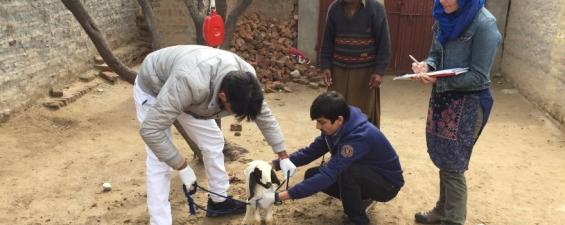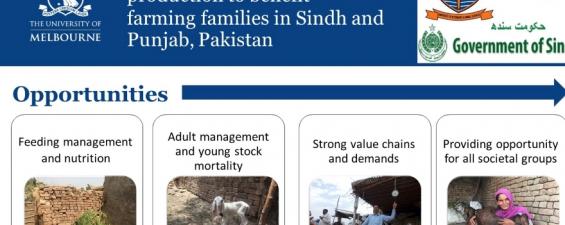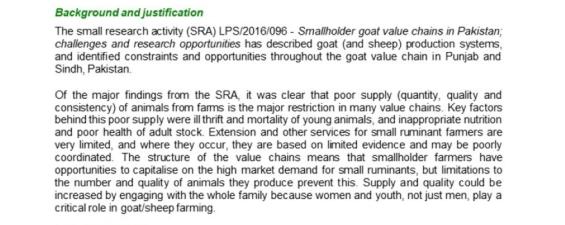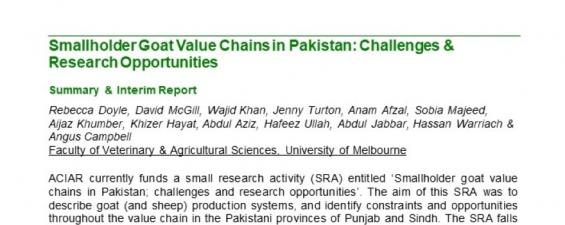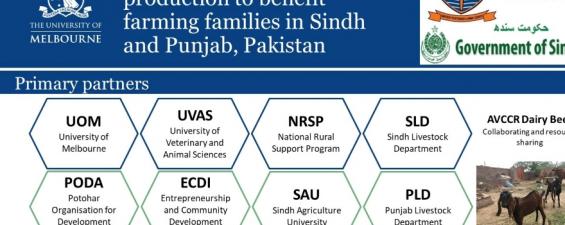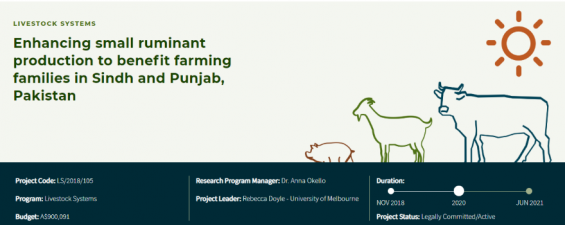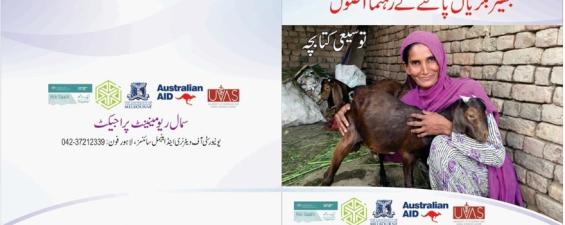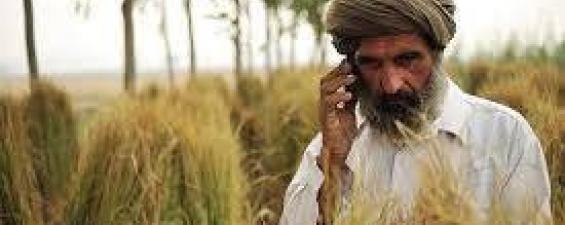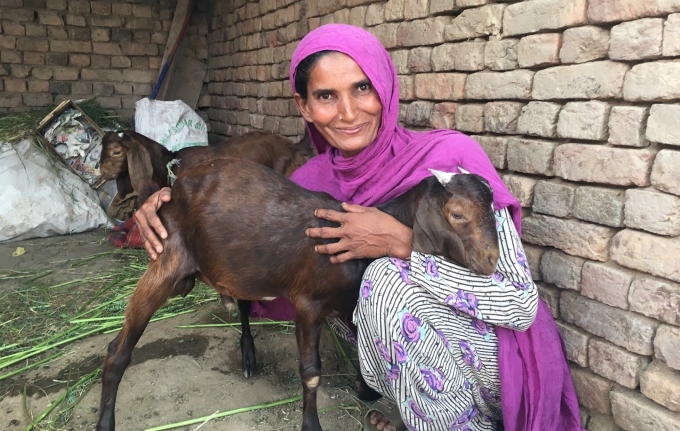
In Pakistan, smallholder families dominate goat and sheep production, and small ruminants play a very important role in Pakistan for both consumers and farmers.
For farmers, goats and sheep are critical to the household. They can easily be sold for income at times of need, and are a source of household nutrition and food security. Requiring low initial investment and maintenance, they are also an accessible option for marginalised groups in society – especially women.
Our project aims to improve the livelihoods and wellbeing of small ruminant farming families.
We will do this by working with women, men and children in farming families to develop strategies for improved, sustainable production of their goats and sheep, and by helping them connect with the value chain better.
Goat and sheep meat are prized above other meats in Pakistan. There is consistent high demand for goat and sheep meat in Pakistan, and an export market too. Goats and sheep are also sacrificed in huge numbers at Eid-al-Adha, a deeply significant annual Muslim observance. Opportunities to capitalise on this with more and better quality animals are clear.
The project objectives are:
- Develop and test improved production practices to increase growth and off take of small ruminants
- Create opportunities for women and their families to derive more benefits from small ruminant production and marketing
- Develop and test strategies for supporting small ruminant farming families to assess market opportunities and attain market specifications.
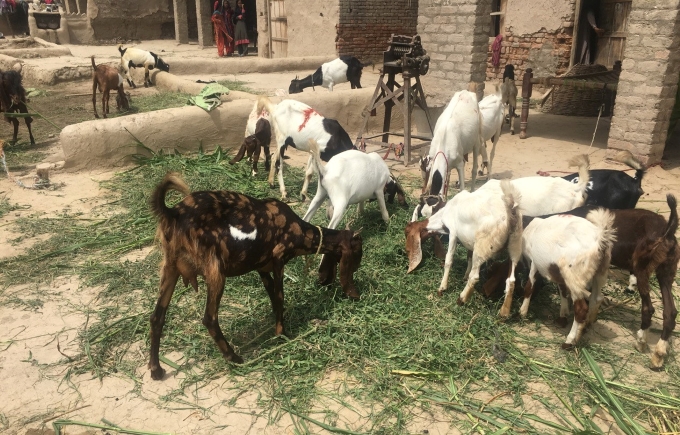
Our small research activity (SRA) LPS/2016/096 - Smallholder goat value chains in Pakistan; challenges and research opportunities described goat (and sheep) production systems, and identified constraints and opportunities throughout the goat value chain in Punjab and Sindh, Pakistan. These findings informed the design of the ongoing work, related to:
- Growth and mortality of young sheep and goats
- Nutrition and husbandry of adult sheep and goats
- Options for selling animals
- Animals meeting market specifications
- Knowledge and services to farming families
From the SRA, it was clear that poor supply (quantity, quality and consistency) of animals from farms is the major restriction in many value chains. Key factors behind this poor supply were ill thrift and mortality of young animals, and inappropriate nutrition and poor health of adult stock.
Extension and other services for small ruminant farmers are limited, and where they occur, they are based on limited evidence.
Using the “Rapid value chain analysis” technique captured data on prices, demands and opportunities for farmers to connect with middlemen and butchers. This identified four interlinked mutton value chains:
- A ‘Traditional Domestic’ value chain supplying traditional wet markets;
- A ‘New Domestic’ value chain involving higher-end consumers buying chilled meat in supermarkets and specialty butcher shops;
- An ‘Export’ value chain, shipping chilled carcases by air to shops and consumers, especially expatriate Pakistanis, in the Middle East;
- A ‘Religious’ value chain in which animals are purchased for sacrifice during festivals such as Eid-al-Adha (Eid) and for other religious observances.
- The structure of the value chains means that smallholder farmers have opportunities to capitalise on the high market demand for small ruminants, but limitations to the number and quality of animals they produce prevent this.
- Supply and quality could be increased by engaging with the whole family because women and youth, not just men, play a critical role in goat/sheep farming.
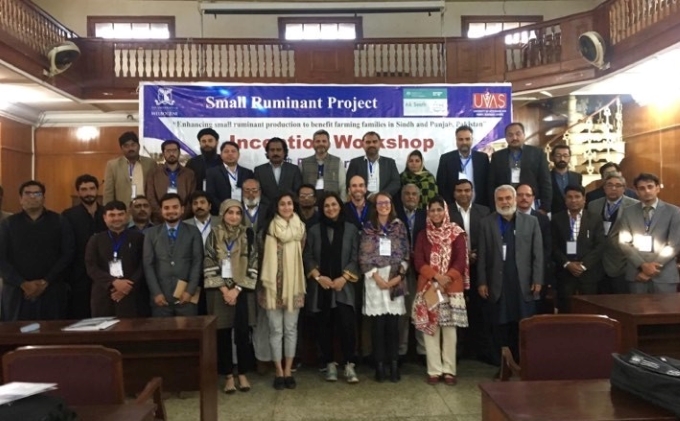
Primary project partners
- The University of Melbourne
- University of Veterinary and Animal Sciences, Lahore
- Sindh Livestock Department
Key Collaborators
- Punjab Livestock Department
- Sindh Agriculture University
- University of Agriculture Faisalabad
- Potohar Organisation for Development Agency
- Entrepreneurship and Community Development Institute
More info can be found at twitter: @RuminantsSmall # Pkgoats
